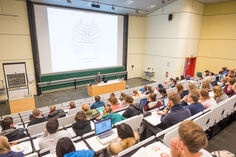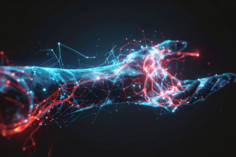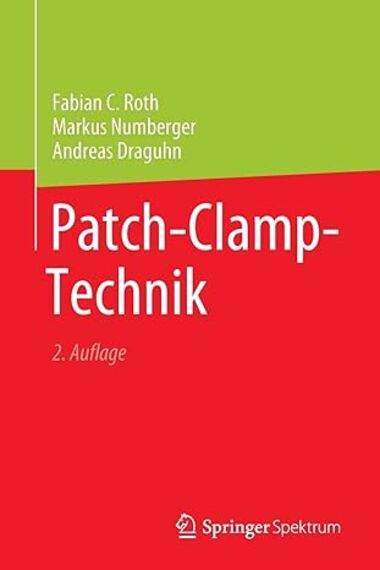- Institut
-
Herz- und Kreislaufphysiologie
- Markus Hecker
- Thomas Korff
-
Hugo H. Marti
-
Forschung
- Zelluläre und molekulare Mechanismen der postnatalen Entwicklung des zerebralen Gefäßsystems
- Die Bedeutung der molekularen PHD-HIF Achse für den akuten Schutz und die langfristige Regeneration nach einem ischämischen Schlaganfall
- Charakterisierung und gezielte Aktivierung von NRF2-abhängigen antioxidativen Mechanismen beim akuten Schlaganfall
- Extrazelluläre Nukleinsäuren als Trigger neuroinflammatorischer Prozesse in akuten und chronisch degenerativen Erkrankungen des Zentralnervensystems
- Neuroprotektion und Neurogenese
- Blut-Hirn-Schranke
- Publikationen
- Personal
-
Forschung
- Andreas H. Wagner
- Neuro- und Sinnesphysiologie
- Lehre
- Zentrale Einrichtungen
- Bernard Katz Lecture
- Stellenangebote
- Aktuelles
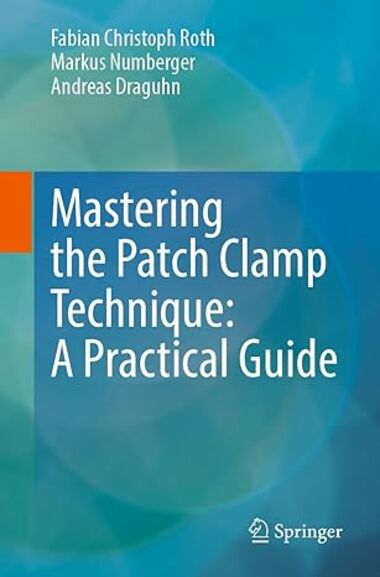
Mastering the Patch Clamp Technique: A Practical Guide (English Edition)
Fabian Christoph Roth, Markus Numberger, Andreas Draguhn
The patch clamp technique is one of the most important electrophysiological methods in use today. Its application in basic biomedical research has provided significant insights into the function and properties of ion channels, making it equally indispensable in applied pharmacological research. This book is the English edition of the popular German introduction to the patch clamp technique. This introductory book serves as a practical guide for teachers and students, offering clear and practical instructions on patch clamp recordings. The authors provide essential information to establish and successfully apply this method in the laboratory. The book covers the basics of measurements, the detailed setup of a patch clamp rig and how to carry out typical recordings. It also includes concrete tips and tricks to help with troubleshooting, making it an indispensable resource. The book not only highlights the enormous potential of the method for the study of ion channels and cell signaling, but also provides an introduction to the major developments and variations of the technique.
The book is aimed at advanced students of biology, biochemistry, medicine, pharmacy and related disciplines as well as scientists who want to better understand and/or acquire the technique.
Meinungsbild zu Tierschutz und Tierschutzgesetz in Forschung und Lehre an der Medizinischen Fakultät der Universität Heidelberg
Kristiana Becker1 und Thomas Korff2
1Interfakultäre Biomedizinische Forschungseinrichtung (IBF) der Universität Heidelberg, 2Institut für Physiologie und Pathophysiologie, Abteilung Herz- und Kreislaufphysiologie, Universität Heidelberg
Umfrageergebnisse zu Tierschutz und Tierschutzgesetz
Die kommentierten Ergebnisse der kürzlich erfolgten Umfrage unter Projektleitern von Tierversuchen an der Universität Heidelberg zum Thema Tierschutz und Tierschutzgesetz sind unter folgendem Link abrufbar:
Meinungsbild_zu_Tierschutz_und_Tierschutzgesetz_Medizinische_Fakultaet_Heidelberg.pdf
Wir danken allen Teilnehmern der Umfrage noch einmal herzlich für ihre Mitwirkung!
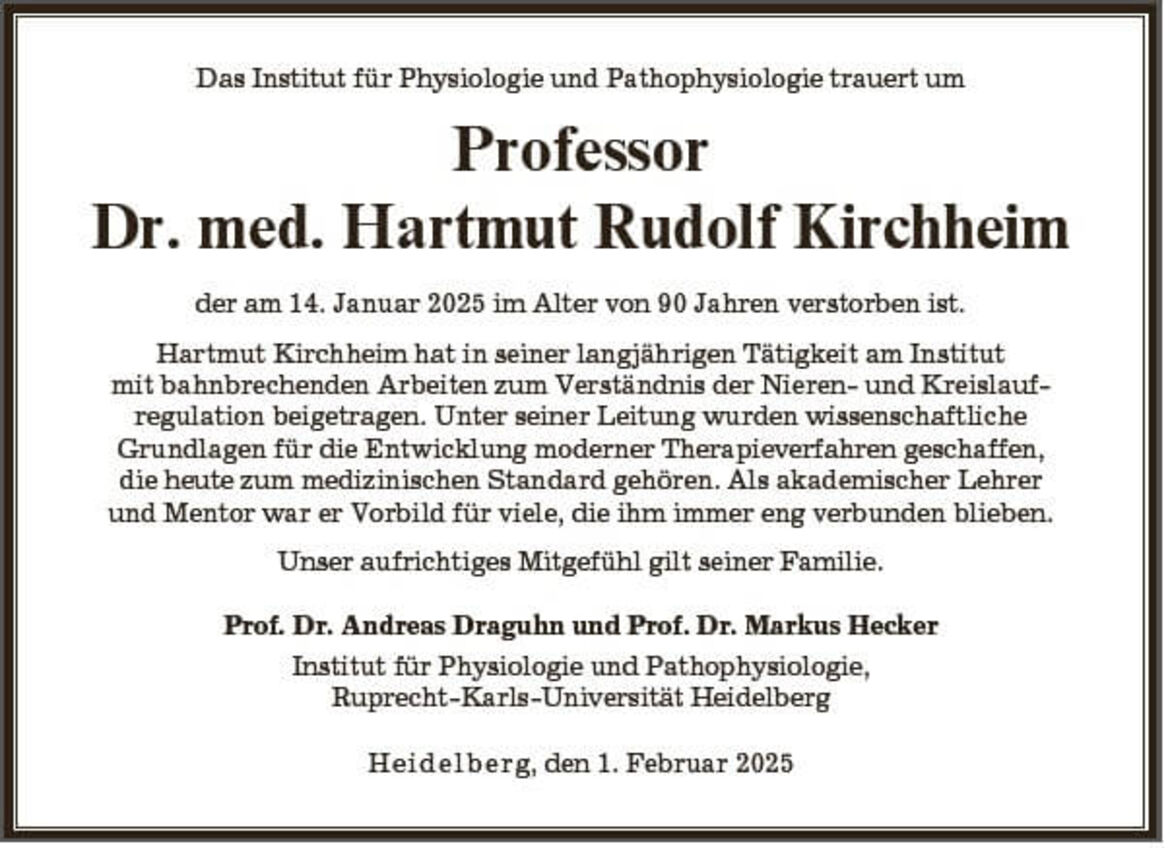
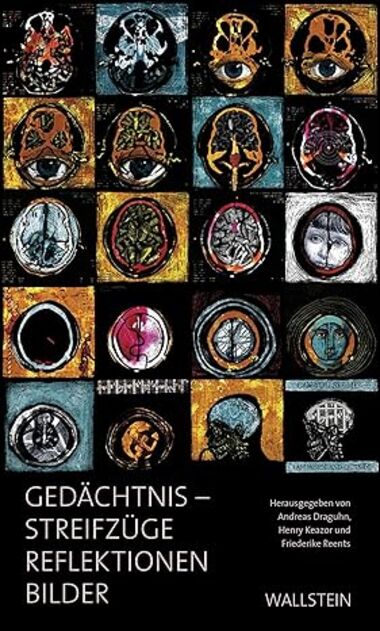
Gedächtnis: Streifzüge, Reflektionen, Bilder
ANDREAS DRAGUHN, HENRY KEAZOR, FRIEDERIKE REENTS (Hrsg.)
Was ist das Gedächtnis? Das Buch vereint die Perspektiven von WissenschaftlerInnen und KünstlerInnen, die sich selbst, die Gesellschaft und die ganze Welt in den Kontext ihrer Geschichte stellen.
Gedächtnis ist ein Wort der Alltagssprache, aber auch vieler Fachsprachen. Psychologie, Hirnforschung und Psychiatrie befassen sich mit dem Gedächtnis, dessen Störanfälligkeit uns heute mehr denn je herausfordert. Aber nicht nur Individuen, auch Gesellschaften haben ein Gedächtnis, sie sind Produkt ihrer Geschichte, die stets präsent und wirksam ist. Auch der Verlust des kollektiven Gedächtnisses zieht tiefgreifende Störungen nach sich, die unsere Verortung und Verankerung in der Welt bedrohen. Und schließlich haben auch Tiere und Pflanzen ihre individuelle und evolutive Geschichte, ja sogar die Erde und das Weltall. Haben auch sie ein Gedächtnis oder verkörpern sie dieses?
Sicher ist: Es gibt nicht ›das‹ Gedächtnis. Je genauer wir hinschauen, umso weniger nähern wir uns einer einheitlichen, allen Aspekten gerecht werdenden Definition. Dieses Buch versucht Antworten zu geben, indem es verschiedene Menschen mit ihren jeweiligen Perspektiven zu Wort, Bild und Klang kommen lässt. Ob Archäologe oder Gedächtnisforscherin, Sprachwissenschaftler oder Philosophin, Astronom oder Geographin, Theologe oder Schriftstellerin – jeder und jede hat eine individuelle, von Herkunft, Wissen, gesellschaftlicher Rolle und eigenen Erfahrungen geprägte Perspektive auf das, was wir Gedächtnis nennen.
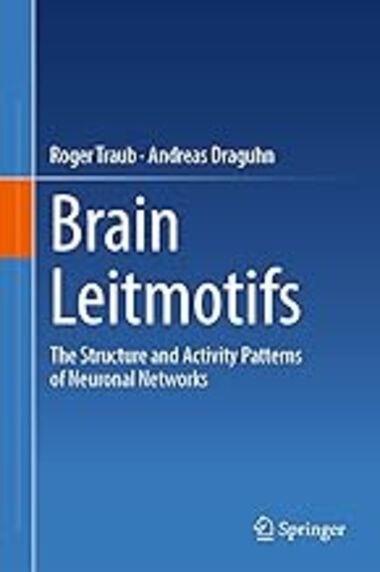
Brain Leitmotifs
The Structure and Activity Patterns of Neuronal Networks
Roger Traub and Andreas Draguhn
This book tackles the question of why the brain is so difficult to fully understand. In neuroscience, data are acquired and analyzed with astonishing techniques and accumulate rapidly. Nevertheless, try to explain how a person can think or why there is such a condition as schizophrenia, and it appears that we really know little. To approach these difficulties, the authors first present a number of case studies in which the operation of a neural circuit is worked out in some detail and, at the same time, the functional significance of the operation is also understood. These examples are complicated in their biologic specifics but are conceptually straightforward. The examples are hoped to provoke an appreciation for what neuroscience can accomplish. The authors then develop some thoughts on how these issues can be addressed----instead of considering cognition in general, taking instead a subset of cognition that does lend itself to formal description.
Patch-Clamp-Technik
Fabian C. Roth, Markus Numberger, Andreas Draguhn
Die Patch-Clamp-Technik ist heute eine der wichtigsten neurophysiologischen Arbeitsmethoden. Ihre Anwendung hat in der biomedizinischen Grundlagenforschung bedeutende Erkenntnisse über die Funktion und die Eigenschaften von Ionenkanälen erbracht, und auch aus der angewandten pharmakologischen Forschung ist sie inzwischen nicht mehr wegzudenken. Klar und praxisbezogen vermitteln die Autoren die wesentlichen Informationen, um die Methode im Labor einzuführen und erfolgreich anzuwenden. Das Buch erläutert die theoretischen Grundlagen der Messung, den detaillierten Aufbau eines Messplatzes und die praktische Durchführung typischer Messkonfigurationen. Konkrete Tipps und Tricks helfen beim „Trouble-Shooting“ und sind nicht nur für Neuanwender eine unverzichtbare Hilfe.
Paper of the Year 2023
Deutsche Physiologische Gesellschaft
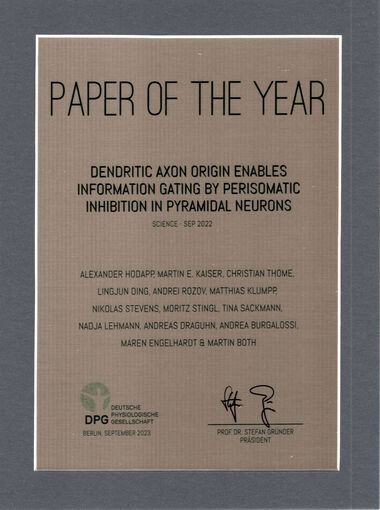
Hodapp A, Kaiser ME, Thome C, Ding L, Rozov A, Klumpp M, Stevens N, Stingl M, Sackmann T, Lehmann N, Draguhn A, Burgalossi A, Engelhardt M, Both M. Dendritic axon origin enables information gatin by perisomatic inhibition in pyramidal neurons. Science. 2022 Sep 23;377(6613):1448-1452. doi: 10.1126/science.abj1861. Epub 2022 Sep 22.
- Institut
-
Herz- und Kreislaufphysiologie
- Markus Hecker
- Thomas Korff
-
Hugo H. Marti
-
Forschung
- Zelluläre und molekulare Mechanismen der postnatalen Entwicklung des zerebralen Gefäßsystems
- Die Bedeutung der molekularen PHD-HIF Achse für den akuten Schutz und die langfristige Regeneration nach einem ischämischen Schlaganfall
- Charakterisierung und gezielte Aktivierung von NRF2-abhängigen antioxidativen Mechanismen beim akuten Schlaganfall
- Extrazelluläre Nukleinsäuren als Trigger neuroinflammatorischer Prozesse in akuten und chronisch degenerativen Erkrankungen des Zentralnervensystems
- Neuroprotektion und Neurogenese
- Blut-Hirn-Schranke
- Publikationen
- Personal
-
Forschung
- Andreas H. Wagner
- Neuro- und Sinnesphysiologie
- Lehre
- Zentrale Einrichtungen
- Bernard Katz Lecture
- Stellenangebote
- Aktuelles

